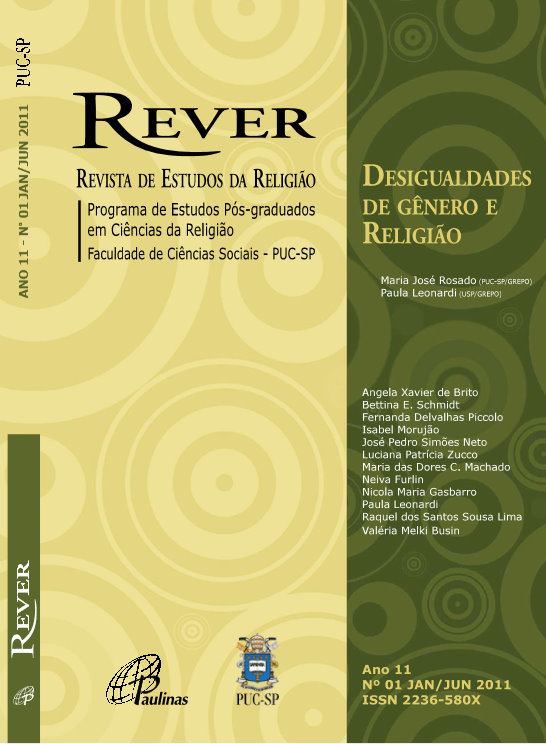Homossexualidade e Igrejas Cristãs no Rio de Janeiro
Resumo
Este artigo analisa o debate sobre as distintas expressões da sexualidade humana no interior de igrejas cristãs situadas na Região Metropolitana do Rio de Janeiro. Mais especificamente, examina as opiniões de treze lideranças católicas, pentecostais e de igrejas evangélicas históricas sobre as homossexualidades e as reivindicações dos movimentos LGBT. A análise desses discursos indica a articulação da perspectiva naturalista da sexualidade com a visão essencialista e dual de gênero em todas as configurações confessionais. Entretanto, sugere reações diferenciadas dos atores religiosos às transformações em curso na sociedade, com alguns grupos dialogando com os movimentos sociais e os novos discursos sobre as subjetividades dos sujeitos sociais. Outros segmentos, contudo, são refratários às proposições das Ciências Sociais que enfatizam a importância da dimensão cultural nas relações de gênero e na sexualidade, e essa reação acaba refletindo no campo de discussões das identidades sexuais alternativas à heterossexual. Observa-se, assim, avanços limitados na negociação cognitiva em torno das homossexualidades e uma forte tendência de alinhamento dos religiosos na defesa da monogamia e no combate à promiscuidade, mesmo nos discursos mais liberais e afinados com as demandas dos movimentos LGBT. Palavras chave: Homossexualidade, lideranças religiosas, Cristianismo Abstract This article analyses the debate on the different expressions of human sexuality inside Christian churches located in the Metropolitan region of Rio de Janeiro. More specifically, consideration is given to the opinions of thirteen catholic, Pentecostal and historical evangelic church leaders on homosexualities and the claims of LGBT movements. The analysis of these perspectives indicates how the naturalist approach of sexuality is linked to the essentialist and dual gender vision in all confessional configurations. However, it also shows some different reactions on the part of religious actors regarding the transformations underway in society. Some groups are open to discussions with the social movements and the new discourses approaches on the subjectivities of social subjects. Other segments, nevertheless, do reject the social sciences proposals emphasizing the cultural dimension in gender relations and in sexuality. This rejection will reflect in the discussions of sexual identities which are alternative to heterosexual identity. The result therefrom is some limited progress in cognitive negotiation about homosexualities as well as a strong alignment tendency for the religious sectors to stand up for monogamy and to fight promiscuity; even in the most liberal positions supporting the demands of the LGBT movements. Keywords: Homosexuality, religious leaders, ChristianityMétricas
Carregando Métricas ...
Downloads
Publicado
2011-06-25
Como Citar
Machado, M. das D. C., Piccolo, F. D., Zucco, L. P., & Simões Neto, J. P. (2011). Homossexualidade e Igrejas Cristãs no Rio de Janeiro. REVER: Revista De Estudos Da Religião, 11(1), 75–104. Recuperado de https://revistas.pucsp.br/index.php/rever/article/view/6031
Edição
Seção
Seção Temática
Licença

Este trabalho está licenciado sob uma licença Creative Commons Attribution-NonCommercial 4.0 International License.
Autores que publicam nesta revista concordam com os seguintes termos:
- Autores mantém os direitos autorais e concedem à revista o direito de primeira publicação, com o trabalho simultaneamente licenciado sob a Licença Attribution-NonCommercial 4.0 International, que permite o compartilhamento do trabalho com reconhecimento da autoria e publicação inicial nesta revista.
- Autores têm autorização para assumir contratos adicionais separadamente, para distribuição não exclusiva da versão do trabalho publicada nesta revista (ex.: publicar em repositório institucional ou como capítulo de livro), com reconhecimento de autoria e publicação inicial nesta revista.


